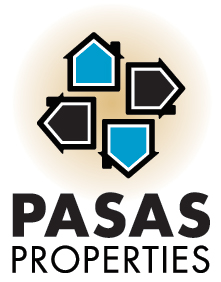Why you should understand condominium association regulations
Linda Pasas earns Certified International Property Specialist designation
October 3, 2014
San Diego Housing Market: Homes Selling Before They’re Built
December 10, 2014Why you should understand condominium association regulations
Here is an important news story recently featured in UT San Diego. It covers the court case of a man who rented out his downtown condo on a nightly and weekly basis, in violation of his condominium buildings regulations.
Man who rented out condo fined $106K, by Jonathan Horn.
If you own a luxurious condo in downtown and want to make some easy money, you can rent out your unit for a weekend via popular sites like Airbnb, Craigslist and Vacation Rentals By Owner.
Just don’t let your Homeowners Association find out — you could be writing them an even bigger check.
That’s what happened to Thomas Stevens, who in July paid The Mark Condominium Association more than $106,000 after a Superior Court judge ruled that he continually violated the opulent downtown building’s regulations by renting out his 19th floor unit on a nightly and weekend basis, something Stevens says he only did once. After he wrote the check, The Mark’s association posted notices in the elevators, informing residents of the victory as a tacit reminder to resist any temptation to list their units for leases shorter than the 90 days the complex requires.
With the skyrocketing popularity of sites like Airbnb and VRBO.com providing travelers an alternative to a hotel, homeowners associations across downtown are taking strides to ensure their residents don’t get tempted to take advantage of the opportunity.
Some municipalities also regulate short-term rentals.
This week, the San Francisco Board of Supervisors voted to make the use of Airbnb legal for the first time in several years, a measure that moves to Mayor Ed Lee’s desk for signature. In New York, it’s still illegal to rent out a residence to someone for fewer than 30 days, rendering Airbnb moot for short-term stays. The city of San Diego doesn’t ban short-term house rentals, but requires a minimum seven-day stay for condos in some areas. Those who rent out their units are required by the city to obtain certification and collect transient occupancy taxes.
“Owners don’t want weekenders or other short-term stays because it turns their home atmosphere into a hotel atmosphere with visitors who can be loud, disruptive, rude, and simply not use the care required to help keep the community clean, safe and free of damage,” said Laurie Kendrick Coxworth, general manager for ICON, a complex on 10th Avenue, which requires at least 30 day leases of its units.
Kendrick Coxworth said each year around Comic-Con, the complex sends out reminder notices to residents not to list their units for the major international event. She said the board is now considering raising the fine for an initial offense from $250 to $1,000. Across downtown, at the 43-story Electra complex off Harbor Drive, the board two years ago increased the fine from $50 for a first offense to a maximum $5,000, although general manager Jim Jennings said most first-timers are fined $500.
Jennings said he checks sites like Airbnb every two weeks to see if people are advertising their units, and even more frequently around Comic-Con. If there’s a listing, he sends the owner a notice that it is not allowed, as the building requires a minimum one year lease. Jennings said he also finds out about short-term rentals through word of mouth.
Read the entire article here.
